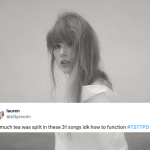
One of Triple J’s biggest priorities is – and has always been – making space for, pushing forward, and celebrating Australia’s incredible young Indigenous artists, particularly in the Hottest 100 countdown.
But this leads to a spanner in the works; many Indigenous people regard January 26th as ‘Invasion Day’. It’s not a day of celebration, but a day of mourning, which brings us to the news that it’s looking very much like Triple J will move the date of the much-loved musical countdown due to increasing public sentiment that it’s disrespectful to First Nations people to celebrate during some of our country’s darkest hours.
Australia Day is held on 26th of January because it’s the date that the first colony was established after the First Fleet arrived. Most white Aussies view this date as the day the country we see before us now started. But for Indigenous Australians, it’s the day that the violent assault on its people and culture began.
The Invasion Day / Australia Day dichotomy still remains a hot topic of conversation. Invasion Day rallies draw thousands of people Australia-wide, who march to protests the fact that Aussies celebrate the success of the British colonists at the expense of the lives of the Aboriginal people.
Don’t get us wrong – a day for national morale is essential and most countries have one, but to hold ours on a day of mourning for First Nation people is understandably insensitive. Especially so when Aboriginal people still aren’t recognised in the Constitution, let alone been offered a treaty of any kind by either major party of the Australian government.
So, now that it’s looking increasingly likely that Triple J will change of date for the Hottest 100, what could this actually achieve?
Firstly, it would be established as an important act of solidarity with not only the aforementioned Aboriginal musicians who the station regularly plays and praises the achievements of, but also all Indigenous Australians.
It would say “We value your mourning over a music countdown that could realistically happen any other day.” It would say, “We are truly sorry, and we are making efforts to put ourselves second to show this.”
Secondly, it would be a significant marker of a change in rhetoric for younger generations.
Let’s be honest with each other here: whatever criticisms you may have, Triple J is a cornerstone of Aussie culture.
Apart from barbecuing meat, the Hottest 100 is possibly the most ‘Strayan cultural phenomenon we have. It’s supportive of local artists, it’s a celebration of everything we hold dear about Aussie music, and having the countdown playing in the background of Australia Day celebrations is a fundamental part of our national day for so many.
As time progresses, the more empathetic and open-minded the youth of the world become; the internet means we have a world of information at our fingertips, and we can read about others’ lived experiences that we wouldn’t ever encounter in terms of bigotry; racism, sexism, homophobia, transphobia and much more.
But, while we are slowly but surely becoming more compassionate and understanding of minority issues and the major damage caused by colonisation, there are many who continue to deny Indigenous issues still exist.
Despite the current devastating rate of Aboriginal deaths in custody, or 14-year-old Aboriginal boy Elijah Doughty being killed in Kargoorlie earlier this month, many disregard these issues with one or more of the following statements: “It’s in the past. Aboriginal people need to get over it. *I* didn’t do anything – why should I have to say sorry?”
The denial of these issues often (not always, but often) does not come from a place of malice or hatred, but learned and unquestioned acceptance of ideas from past generations, and/or a lack of awareness. As Adelaide FC player Eddie Betts said after the racist incident towards him during a recent AFL game: “This is all about education”.
While it may seem trivial to some, Triple J changing the date of its widely-adored Hottest 100 segment would be a significant opportunity for increased education, empathy and solidarity, and could help many young Aussies realise this is a bloody big deal. It might help someone with instilled prejudice take the time to research and learn about the issues First Nations people experience. It has the ability to lessen institutionalised prejudice. It has the potential to change minds.
It wouldn’t have to be cancelled or downplayed to achieve this, it simply has to be moved to another day – and, as we said, that now seems like it’s a very plausible prospect.
We’d still have everything we love about the Hottest 100 – the music, the national morale, the community spirit, the bringing together of loved ones – just without contributing to a day of mourning.
Change has gotta start somewhere, and this could be a very real catalyst for not only major political movement on Indigenous issues, but also the everyday treatment of a community still plagued by colonist pressures 200 years on.
Photo: Matt & Alex / Triple J.



